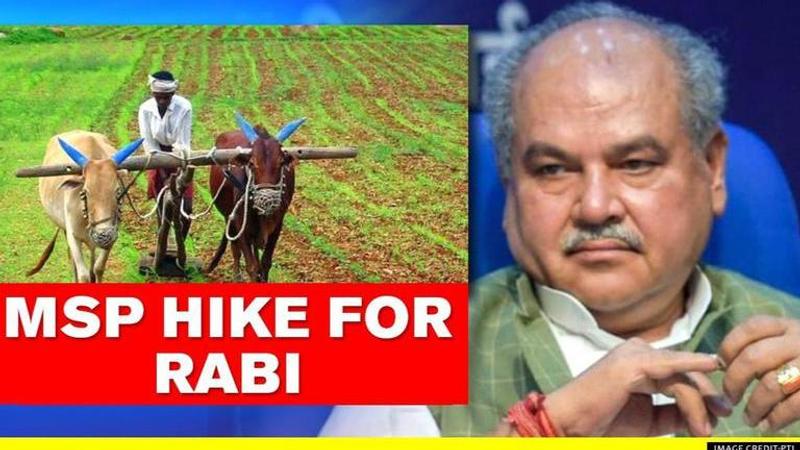Published 20:34 IST, September 21st 2020
Centre hikes MSP for 6 Rabi crops amid Farm Bill row; PM Modi says move to empower farmers
Modi govt approved a hike in Minimum Support Prices (MSPs) for all mandated Rabi crops for marketing season 2021-22 in line with Swaminathan Comm recommendation

A day after the Parliament cleared three farm sector reform legislations amid uproar, the Modi government approved a hike in the Minimum Support Prices (MSPs) for all mandated Rabi crops for marketing season 2021-22 in line with the recommendations of the Swaminathan Commission. The decision was taken in the Cabinet Committee on Economic Affairs (CCEA) chaired by Prime Minister Narendra Modi on Monday.
Making the announcement in the Lok Sabha after the CCEA meeting, Agriculture Minister Narendra Singh Tomar said the support price for wheat has been increased by Rs 50 to take it to Rs 1,975 a quintal for the coming Rabi season. Tomar also took an aim on Congress and said that while the grand old party is telling the entire country that the MSP and APMC will go, the government's decision is proof of the fact that both will continue.
Announcing the MSP for six crops, including Chana, Tomar said, “I want to reiterate that the MSP and the APMC will both remain."
Benefits under revised rates
In a statement, the Ministry of Agriculture said the highest increase in MSP has been announced for lentil (Rs 300 per quintal) followed by gram and rapeseed and mustard (Rs 225 per quintal each) and safflower (Rs 112 per quintal). For barley and wheat, an increase of Rs 75 per quintal and Rs 50 per quintal respectively has been announced. The differential remuneration is aimed at encouraging crop diversification, it said.
The increase in MSP for Rabi crops is in line with the principle of fixing the MSPs at a level of at least 1.5 times of the All-India weighted average cost of production as announced in Union Budget 2018-19, the Ministry said. The expected returns to farmers over their cost of production are estimated to be highest in the case of wheat (106%) followed by rapeseed and mustard (93%), gram, and lentil (78%). For barley, the return to farmers over their cost of production is estimated at 65% and for safflower, it is 50%.
The umbrella scheme PM AnnadataAaySanraksHan Abhiyan (PM-AASHA), comprising the Price Support Scheme (PSS), Price Deficiency Payment Scheme (PDPS), and pilot Scheme of Private Procurement and Stockist Scheme (PPSS) will aid in the procurement of pulses and oilseeds, the government said.
PM hails decision
Hailing the decision, PM Modi took to Twitter and said higher MSP will empower farmers and contribute to doubling of their income. "Increased MSP, along with the series of agriculture reforms passed by Parliament will ensure dignity and prosperity of farmers. Jai Kisan!"
Updated 20:34 IST, September 21st 2020




